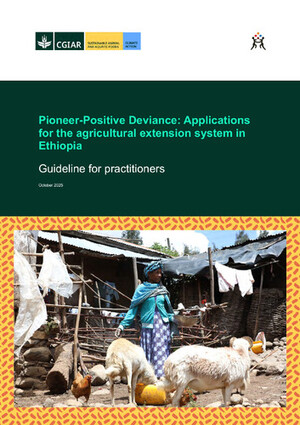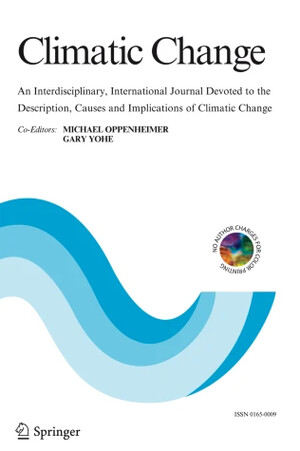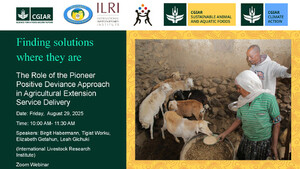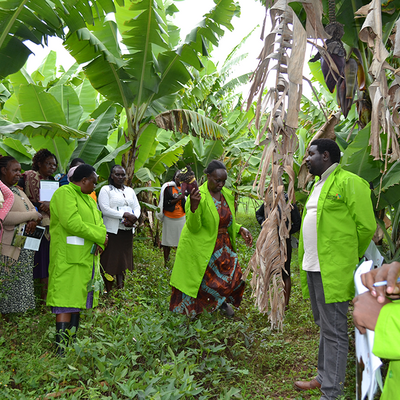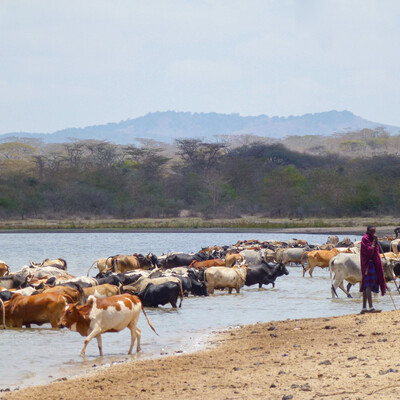Challenge
Low- and middle-income countries urgently need resilient and low-emissions livestock solutions to respond to climate change. Facing a climate emergency, research must provide proven adaptive measures that safeguard and capitalize on livestock benefits. Livestock are essential to the income and livelihoods of almost 930 million poor Africans and South Asians.
Livestock production is highly vulnerable to rising temperatures, erratic precipitation and increasing extreme events. About US$311 billion in livestock production value is exposed to various climate hazards, especially drought, climate variability and heat stress. Dryland pastoral systems experience intensifying impacts from climate change and other forces. Research must also provide innovations that mitigate livestock climate impacts as livestock cause about 15% of human-induced greenhouse gas emissions.
Nearly 50% of low- and middle-income countries prioritize livestock actions in their Nationally Determined Contributions, but implementation lags. Governments need technical support to access finance, implement programs and report mitigation achievements.
Objective
This initiative aims to partner with public and private actors to develop and deliver actionable innovations that measurably help producers, businesses, and governments adapt livestock agrifood systems to climate change and reduce greenhouse gas emissions, contributing to sustainability and development goals across livestock systems.

